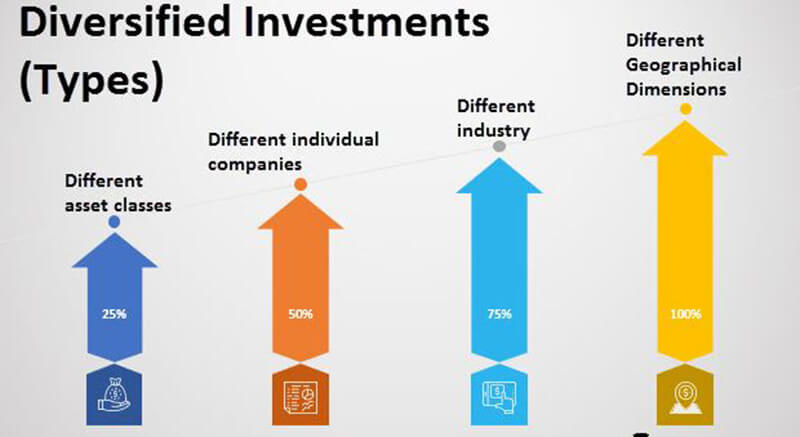what are the 4 types of investments
It is important to consider them.
Investments are bucketed into three classes: cash equivalents, bonds, and stocks. There are several ways.
Listed below are six kinds of investments that you may consider for long-term expansion, and what you ought to know about every single. Notice: We will not get into money equivalents — savings account, certificates of deposit or matters such as money markets — since they are less about keeping it secure and much more about increasing your cash.
1. Stocks
When you buy a stock, you are purchasing a share — just a piece — of the organization’s assets and earnings. Businesses sell shares of stock in their own companies investors sell and may purchase these stocks. Stocks bring in returns but arrive with more danger than investments. Businesses go out of business or may eliminate value. Read our entire explainer on shares.
How traders earn money: Stock investors earn money once the value of this stock they have goes up and they are ready to sell that stock for a profit. Some stocks pay dividends, which can be distributions of the earnings of a company for investors.
2. Bonds
A bond is a loan that you make to government or a business. You are letting the bond issuer to borrow your own cash and pay you back when a bond is purchased by you rates.
Bonds are usually considered safer than stocks, but in addition, they provide yields. The risk, just like any loan, is the issuer may default. Town and state government bonds are considered the next-safest alternative, followed closely by bonds. The more preferable the lower your rate of interest, the bond.
Interest is paid to shareholders in installments — normally twice or once annually — and the principal is paid at the maturity date of the bond.
3. Mutual funds
In case the concept of choosing and picking stocks and bonds is not your bag, you are not alone. There’s an investment made for folks like you: the fund.
Mutual funds make it possible for investors to buy a number of investments in one trade. These funds pool money from many investors who hire a professional director.
A group plan is followed by funds — a fund may invest in a kind of bonds or stocks, like government bonds or stocks.
How traders earn money: every time a mutual fund makes cash — for instance, through stock volatility or bond curiosity — it spreads a proportion of them to investors. When investments in the finance move up in value, the worth of the fund rises too, so you may sell it for a profit. Be aware you will pay a yearly fee to put money into a mutual fund.
4. Index funds
An index fund is a sort of fund which monitors an index, instead of paying a supervisor.
The advantage of index funds is they often charge less because they do not have that supervisor on the payroll. Find out more about index capital.
How traders earn money: Index funds can earn interest or dividends, which can be distributed to investors. Once the indexes they track up in value, these funds can appear in value; traders may market their share in the fund for a profit. Cost ratios also cost, but these costs are normally lower as mentioned previously.
5. Exchange-traded funds
ETFs are a type of index fund: a standard indicator is tracked by them and intention to mirror the performance of that index. Like index funds, since they’re not managed, they are normally less expensive.
The distinction between ETFs and index funds is ETFs are bought: They trade in an exchange also an ETF’s cost will fluctuate through the day and like a stock, which means that you can purchase and sell ETFs. Index funds and mutual funds, at the end of every trading day, are costly on the other hand — which cost is going to be the exact same regardless of what time you sell or purchase. Bottom line: This gap does not matter to investors, but if you would like to have more control an ETF might be preferred by you.
ETFs can pay out interest and dividends to investors
6. Alternatives
Alternatives provide flexibility since the contract does obligate you to purchase or sell the inventory. Doing this is an alternative as its name suggests.
When you purchase an option, you are purchasing the contract, not the inventory. You may either buy or sell the inventory in the agreed-upon price over the agreed-upon period; market the choices contract or allow the contract to expire.
How traders earn money: Alternatives are often very complicated, but at a simple level, you’re locking in the cost of a stock you expect to improve in value. You gain by buying the stock for less than the going rate if your crystal ball is correct. You are able to forgo the buy When it’s incorrect and you itself.
To Buy investments
Regardless of what you put money into, you are going to require a broker account. Contrary to a bank account, a broker account lets you purchase and sell investments.
It is possible to open a brokerage account in as few as 15 minutes and financing, you’re going to be prepared to start investing. The agent’s site will have resources that will assist you to find the investments you would like, and many also provide educational tools to get you started. Read our entire manual for much more on just how and where to start a brokerage account, or examine a few of our top choices below.
